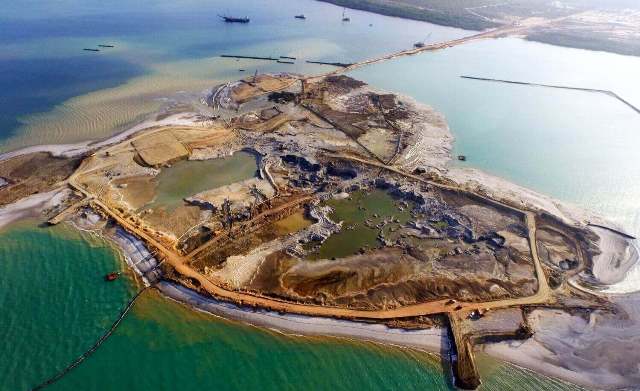Kenya economy continues to display resilience despite heightened political activities, a top official from Kenya Vision 2030 Secretariat has said.
Director Julius Muia said that the Kenya economy will not be distracted by economic activities currently going on in the country. He exuded confidence that investment activities in Kenya will increase significantly after the Oct. 17.
“We have seen increased investor willingness to invest in mega projects in the country. We believe that once the elections are over, investors will stream to the country,”Mr Muia said.
He said that in the wake of a historic Supreme Court ruling that nullified the Kenyan presidential election, investors have shown increased confidence in the country
“Resilience of the stocks market and stellar performance of the shilling against the U.S. dollar are key developments that give us confidence in the stability of economic performance,” he added.
One of the project that Muia believes is expected to attract investors is the Lamu Port South Sudan Ethiopia Transport (LAPSSET).
The LAPSSET Corridor Program is Eastern Africa’s largest and most ambitious infrastructure project bringing together Kenya, Ethiopia and South Sudan.
Kenya economy could be hurt
But the prolonged electioneering period has caused jitters among businesses in the country.
Last week, Kenya National Chamber of Commerce estimated that Kenya has lost Sh21.3 billion since the Supreme Court ruling that nullified presidential elections.
The business chamber attributed it to a wait-and-see attitude among investors, low money circulation and missed business opportunities.
Read:Mortgage uptake in Kenya records major drop
And on Monday two other businesses entities added their voice to the situation in Kenya. They warned that the economy is in danger of total decline and urged politicians to strike a quick deal to end the stalemate over the repeat election
The Kenya Private Sector Alliance (Kepsa) and Kenya Association of Manufacturers (Kam) warned that the political tension could lead to inflation and an unpredictable Kenya economy.
This could adversely affect Kenya economy in a country where underemployment and youth unemployment are high. The World Bank estimates that Roughly 40% of Kenyans live below the poverty line, and inflation hit a five-year high of 10.3% in March 2017.

